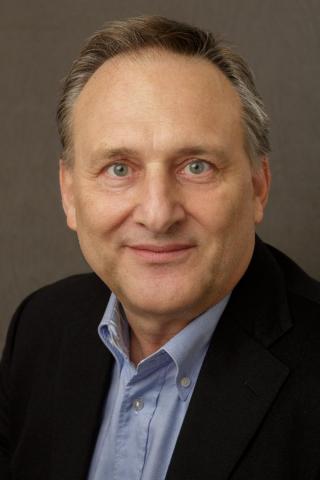

Andrea Califano, Clyde and Helen Wu Professor of Chemical and Systems Biology, was recently awarded two large multi-million dollar, multi-year grants from the National Cancer Institute (NCI) for deep research into molecular behavior for insights into cancer progression and treatment. The grants recognize Califano’s position as a pioneer in the field of systems biology – bringing his drive to “know how something works” to our understanding of the human cell. “Systems biology is model-based biology,” Califano explains. “We create a model, use the model to make predictions, and then test the predictions with experiments.”
Califano came to Columbia in 2003, with a background in physics and computational mechanics and a career at IBM working in computer science, AI, and computational biology. In 2005, he raised the funds to bring sophisticated computational power to biological experiments; and in 2010, he founded the Department of Systems Biology at Columbia University Irving Medical Center, with the goal of integrating quantitative and experimental research methods into the biological and biomedical sciences. Today, the department brings together more than 30 researchers specializing in computational biology, experimental biology, and technology development to discover how biological traits emerge from complex molecular networks.
Within the department, researchers in the Califano Systems Biology Lab study biology from the perspective of the complex networks of gene and protein interactions that define and regulate cell physiology. Califano and his team have built algorithms to generate detailed models of the complex molecular interactions within human cells, both normal and disease-related. This enables them to simulate cancer cell response to drug perturbations and test for best outcomes. “We are building the assembly manual of the cancer cell,” Califano explains. “This helps us diagnose the problem, and then test our hypothesis on what is broken. Our experimental validation rates are consistently over 80%.”
The Lab’s work seeks to identify the molecular factors that lead to cancer’s emergence and progression, and to the emergence of drug resistance. This includes investigating the workings of cell regulatory networks by developing models of these networks to predict the regulatory checkpoints — also called master regulators — that are essential to the molecular programs that generate specific cellular phenotypes. These master regulators have been shown to serve as effective molecular biomarkers of specific phenotypes and constitute extremely promising targets for selectively eliminating diseased cells or reverting them to a normal physiologic state. In several cases, these findings are now being investigated in clinical trials.
The first NCI funded project, “Predicting Cancer Cell Response to Endogenous and Exogenous Perturbations at the Single Cell Level” represents an NCI Outstanding Investigator Award (R35) to develop genome and proteome-wide network models to predict how cells respond to small molecule and genetic perturbations, including their ability to plastically reprogram across the distinct states detected in a specific human malignancy. The second project, a center of excellence in the Cancer Target Discovery and Development network (CTD2) involves “elucidating and targeting tumor dependencies and drug resistance determinants at the single cell level,” with a focus on developing novel therapy approaches to treating cancer tumors by better understanding the behavior of master regulators.
Califano is also the co-founder of biotech startup DarwinHealth, Inc. where he currently serves as Chair of the Scientific and Medical Advisory Board. DarwinHealth develops and applies proprietary algorithms and methodologies to match cancer patients with individualized drugs and drug combinations that are optimally suited to produce successful treatment outcomes. These methodologies help pharmaceutical companies generate insights into the alignment between their developmental pipelines and human diseases.
For Califano, there is a clear trajectory in his research path from physics to computational mechanics, computer science, systems biology, and his current work in systems pharmacology, immunology and clinical research. “I come from a family of doctors,” Califano says, “but I do my problem-solving based on physics principles. My approach is to treat the cell as an information exchange – and then reverse engineer how their internal machinery works.”
“Interdisciplinarity creates an extremely powerful social cloud to address problems that otherwise can’t be solved,” he adds “It aligns with the philosophy of DSI – that insights come from translating across disciplines.”
— Karina Alexanyan, Ph.D. and Shane Tan